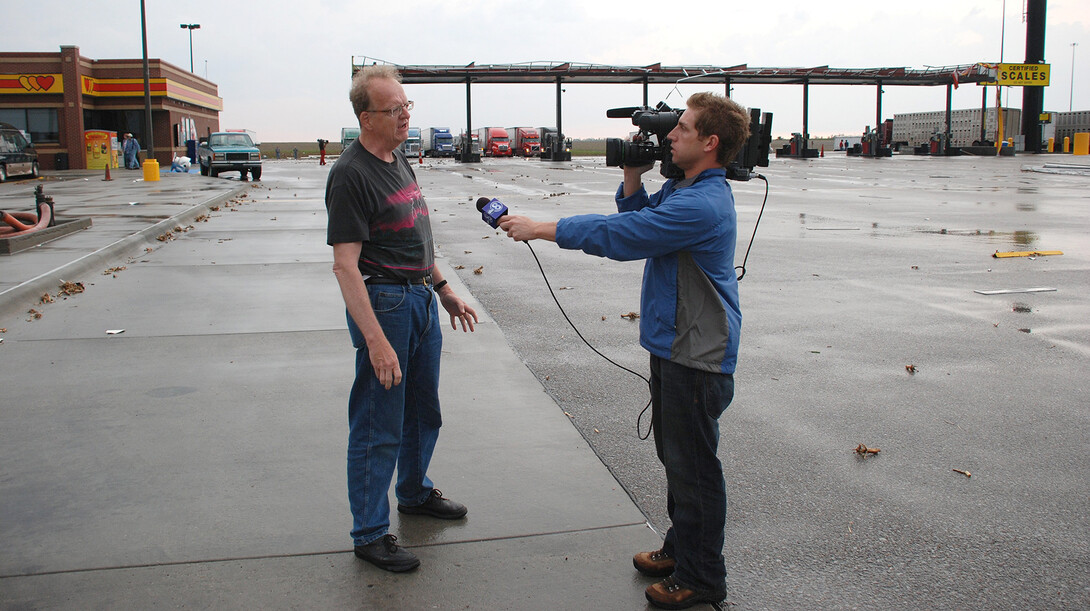
In a swirling morass of severe weather predictions, UNL’s Ken Dewey is the calm before the storm.
Instead of marketing the Weather Channel’s Tor:Con rating system or harking on the destructive nature of potential storms predicted for later today, the professor of climatology in the School of Natural Resources is simply urging people to be alert and cautious as they go about normal activities.
“Today there is potential for severe storms, but it’s not worth all this hype and worry,” Dewey said. “People need to simply be alert to the fact that the potential is there. We really won’t know what the weather holds until later this afternoon.”
His biggest worry is the storm-potential bluster flooding local airwaves and social media posts.
“I’m not diminishing the risk of severe weather today, because the ingredients are there,” Dewey said. “But, I do think all this pre-storm hype is awful. We do not have the ability to forecast exactly what will happen in terms of severe weather even one day ahead of time. There are so many ingredients that can come together so we need to wait until the event begins to unfold before we know exactly how bad it might be.
“When we overdramatize storms, weather professionals run the risk of crying wolf, losing credibility and desensitizing people to forecasts. When we do that, we’re putting people at risk.”
Dewey said morning forecasts called for an 80 percent chance of thunderstorms after 5 p.m. in the Lincoln-Omaha area. He believes the atmospheric ingredients will come together to produce storms similar to those experienced in July (mainly hail and rain) rather than the tornadic events that often threaten in late May and early June.
“To declare at this point that we face town-wiping storms is ridiculous,” Dewey said. “People need to avoid the hype and just be on elevated alert in regard to the severe weather threat we face.”
As he does every other day of the year, Dewey is offering weather-related updates on Twitter and Facebook.
Information about what to do in the event of a tornado while on a UNL campus is available at http://emergency.unl.edu/procedure/tornado.
In addition, officials encourage those who have not yet signed up for UNL’s campus alert system to do so at http://unlalert.unl.edu. UNL Alert is a mass notification system that sends text messages and emails to the device and address a user designates.







